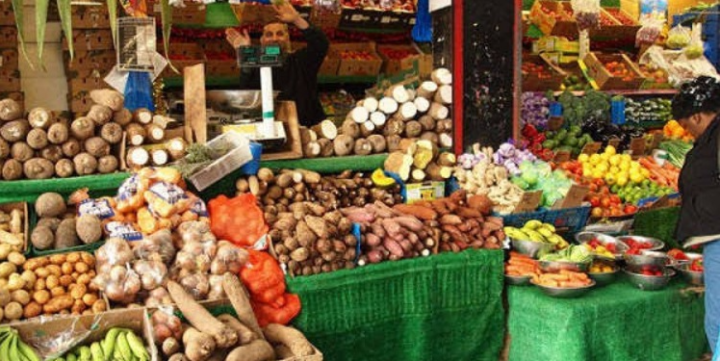In its October 2023 special issue report on Africa, the International Monetary Fund (IMF) has drawn attention to a pressing concern: food insecurity.
Within the vast expanse of the African continent, the IMF has highlighted a staggering statistic, revealing that a staggering 158 million people are grappling with food insecurity. This sobering revelation underscores the immense challenges facing the region, where approximately 13% of the population is struggling to access a consistent source of nourishment.
The IMF’s report delves deeper into the intricate tapestry of factors that contribute to this distressing situation. It notes that within Africa, only a select few nations possess the essential combination of technology, financial resources, and capacities required to effectively weather economic shocks. These capable nations are equipped to navigate the treacherous waters of volatility and adversity with a degree of resilience.

However, the circumstances are notably challenging for Africa’s fragile and conflict-ridden states. These nations find themselves perched on the precipice of vulnerability, teetering under the weight of external shocks. Such shocks can manifest in various forms, including surges in food prices, pandemics, and the relentless onslaught of climate-related hazards.
The IMF underscores that the repercussions of a nation’s failure to address these issues do not merely echo within the confines of its borders. Instead, they reverberate outward, cascading into neighboring countries and enduring across generations. This interconnectedness accentuates the imperative need to confront conflicts and fragility within states. Such efforts transcend regional boundaries; they are integral to global welfare, demanding a collective and concerted commitment to establish stability and prosperity not only within the African region but also for the broader global community.
In essence, the interdependence of nations underscores the essential role of collective action and international cooperation. It is imperative to foster resilience and mitigate the profound and far-reaching effects of fragility and conflict in Africa. The intertwined fates of countries across the globe necessitate a united front to address the common challenges posed by instability in the African region.
Within the report, the IMF additionally raises concern over the suspension of the Black Sea Grain Initiative. This development raises the worrisome prospect of renewed upward pressure on international food prices. Furthermore, the report points to the potential repercussions of elevated oil prices on food costs, including through their impact on the price of fertilizers. These factors add complexity to the already challenging issue of food security in Africa and highlight the need for a multifaceted approach to address these interconnected concerns.
To contextualize these global and regional challenges, it’s essential to consider the specific conditions within Nigeria. The National Bureau of Statistics (NBS) released a Consumer Price Index (CPI) report on Monday, October 16, offering a snapshot of the economic landscape. The report revealed that the inflation rate for September 2023, compared to the same month the previous year, had risen to 26.72%, marking a significant increase from the 20.77% recorded in September 2022. Even when compared to August 2023, which registered an inflation rate of 25.80%, the increase was evident at 0.92%. The NBS attributed these surges in inflation rates to the escalating costs of food and energy, encompassing electricity, gas, and other fuel sources.
The IMF’s report further underscores the significance of inclusive and high-quality development as a foundational pillar for Africa’s growth and resilience. The region’s youthful and rapidly expanding population accentuates the urgency of creating job opportunities, especially for newcomers, including women. Achieving this goal necessitates a series of critical structural reforms.
The IMF advocates for diversification in resource-dependent nations and a transition from government-led growth to private-sector-driven expansion. Engaging the female workforce is identified as a pivotal element in this transformation. The report underscores the importance of reforms that streamline bureaucratic processes, enhance transparency, establish fair competition, improve public services, and promote financial inclusion. These recommendations represent a roadmap toward addressing the multifaceted challenges facing Africa, from food insecurity to economic growth and resilience.
Support InfoStride News' Credible Journalism: Only credible journalism can guarantee a fair, accountable and transparent society, including democracy and government. It involves a lot of efforts and money. We need your support. Click here to Donate
